Diagnosing & Treating Sleep Apnea - Plano, TX
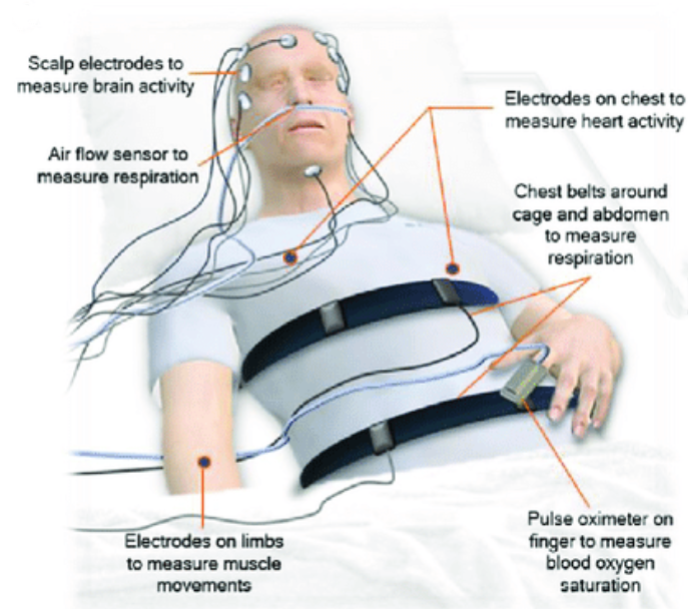
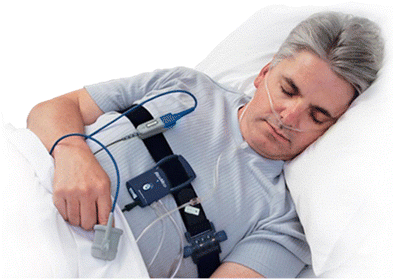
Diagnosis
Sleep apnea is a widespread condition where your breathing repeatedly stops and starts during sleep, which can interfere with your body's ability to receive sufficient oxygen.
Common Signs and Symptoms
- Loud snoring
- Gasping, choking, or pauses in breathing during sleep
- Morning headaches and waking up feeling unrefreshed
- Daytime fatigue or excessive sleepiness
- Irritability, mood changes or difficulty concentrating or memory issues
- Frequent nighttime urination (nocturia)
A thorough sleep evaluation, which includes a complete medical history, physical examination, and sleep study -in lab polysomnography or at home, is usually necessary to diagnose sleep apnea. Sleep studies are conducted by sleep specialists either at sleep laboratories or in-home.
Treatment
Obstructive Sleep Apnea is managed by multiple methods.
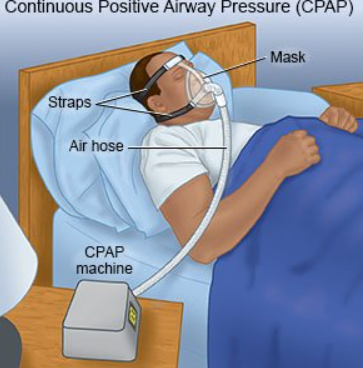
CPAP is a mask that fits over patient’s mouth, nose and blows positive pressure or air through the nose into the lungs which helps to keep the airway open. Patient would sleep with mask, straps around the face. However, CPAP can be uncomfortable, and many patients cannot or do not want to consistently wear the CPAP.
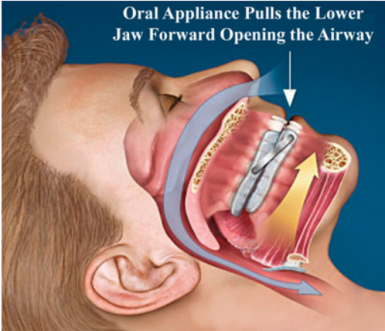
A Mandibular Advancement Device (MADs) is an oral appliance which is as effective as CPAP in managing Obstructive Sleep Apnea. The appliance works by gently shifting the lower jaw and tongue forward, which helps open up the airway. This forward position stabilizes the surrounding muscles, preventing them from collapsing and obstructing breathing during sleep
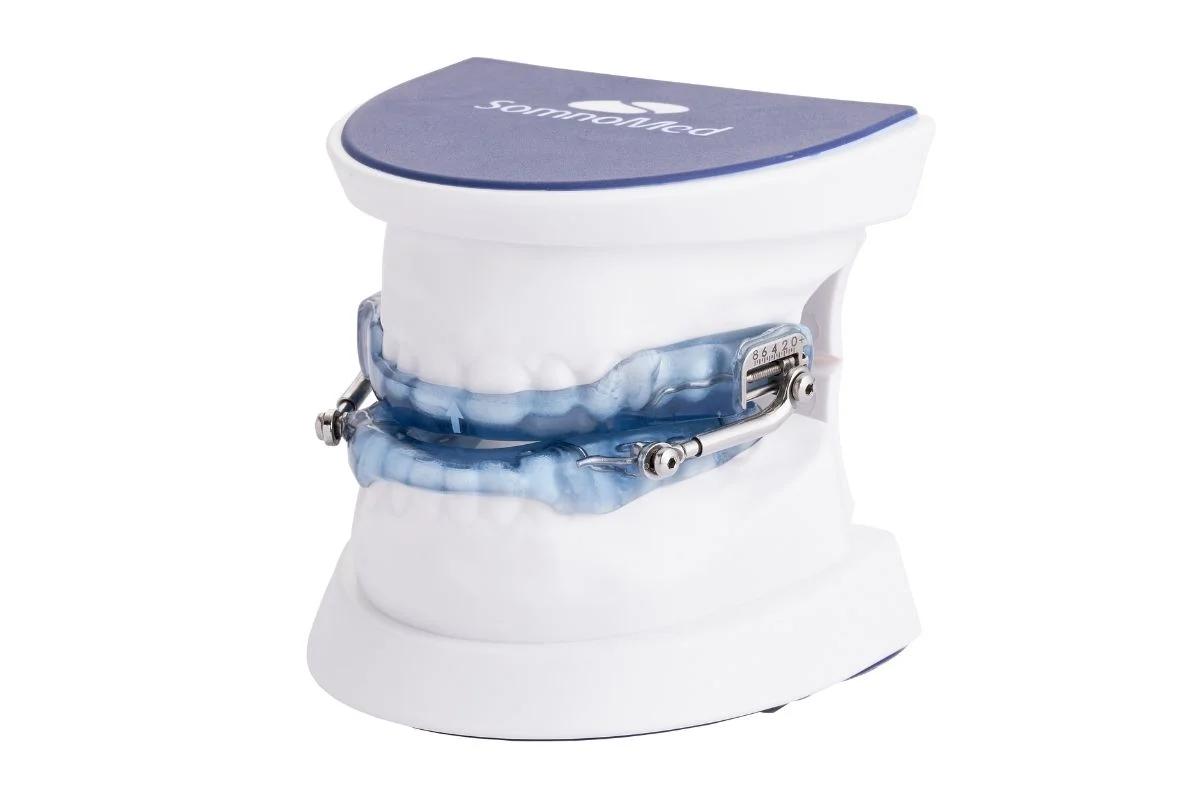
Advantages of MAD
- Comfortable and easy to use
- Non-invasive and reversible treatment
- Small, convenient, and easy to travel with
- Customizable treatment
- Improves sleep quality
Surgical options are used to most often address the problem by reducing or removing tissue from the soft palate, uvula, tonsils, adenoids or tongue. More complex surgery may be performed to adjust craniofacial bone structures.
Behavioral and positional therapy can be useful such as weight loss, sleeping on sides not on the back, slight raising the head of the bed in reducing the symptoms.
Why to choose Orofacial Pain Associates for the management of OSA?
The success of an oral appliance in treating obstructive sleep apnea (OSA) depends on several factors, including the type of appliance used, as well as the skill and experience of the practitioner who fabricates, fits, and adjusts it. A well-designed appliance must be customized to each patient's unique anatomy and needs, which requires precise adjustments and follow-up care to ensure optimal results.
Dr. Kanti is highly trained in the field of sleep medicine and has extensive experience in the management of OSA. As a Diplomate of the American Board of Dental Sleep Medicine, she has met the highest standards of knowledge and proficiency in the field. Additionally, as a member of the American Academy of Dental Sleep Medicine, Dr. Kanti stays up to date with the latest advancements in sleep medicine and treatment techniques. Her expertise enables her to deliver personalized care, ensuring that each patient receives the most effective and comfortable oral appliance therapy, specifically tailored to their individual condition. Over the years, Dr. Kanti has successfully treated many patients with OSA, helping them achieve improved sleep quality and overall health.